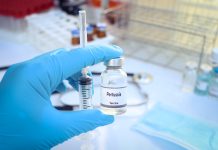How can the EU’s pharmaceutical legislation help tackle current challenges, including medicine shortages and antimicrobial resistance, across Europe? We put the question to Rainer Becker, Director for Medical Products and Innovation at DG SANTE
Two major challenges
There are many challenges for public health policy. Amongst them are medicines shortages and antimicrobial resistance. Medicines shortages can have serious consequences for Europe’s national health systems and, above all, for the health of patients. Over the last ten years, there has been a significant increase in the number of shortages notified within the EU. They can be triggered by many factors, including quality and manufacturing problems, commercial decisions, and/or complex supply chains that are vulnerable to disruptions due to a lack of diversification of key suppliers. Regardless of the reason, shortages represent serious risks to the health of patients in the EU.
AMR: The silent pandemic
Antimicrobial resistance (AMR) is what some consider to be the silent pandemic of our times. Many people are indeed still largely unaware of how the inappropriate and excessive use of antimicrobials (such as antibiotics) contributes to making these important medicines ineffective – with dangerous health consequences for the future that are felt already now. Today, it is estimated that every year, 700,000 people worldwide lose their lives due to drug-resistant bacteria, with more than 35,000 of these deaths taking place in the EU. This could increase to ten million per year by 2050.
These are two huge challenges for health policy in Europe. Both require decisive, multi-pronged solutions involving policymakers, industry, the healthcare sector, and other stakeholders. Both shortages and AMR are high-priority issues for the European Commission, which we are working to tackle through a combination of legislation, coordination of Member States’ actions, support to industry and researchers, and awareness raising.
Reforming the EU’s pharmaceutical reform
Our proposal to revise the EU’s pharmaceutical legislation is a prime illustration of the importance the Commission gives to the prevention of medicine shortages and the fight against AMR. In the proposed reform, next to a range of other measures to future-proof the regulatory framework, facilitate innovation, and ensure access to safe, effective, and affordable medicines across the EU, we provide some concrete policy measures to address the issues of both shortages and AMR.
Availability of medicines
One main objective of our pharmaceutical reform is indeed the availability of medicines. Put simply, medicines should be available for our citizens when they need them, wherever they live in the EU, and at all times. To achieve this, the pharma reform sets out processes to mitigate and manage critical shortages in the EU while proposing measures for companies to further strengthen the security of supply of their critical medicines. In October 2023, the Commission presented a Communication on addressing medicines shortages in the EU, which – inter alia – fast-tracked some measures from the EU pharmaceutical reform proposals, such as the first version of the Union list of critical medicines that was published at the end of 2023. It also established the Voluntary Solidarity Mechanism, a last resort mechanism allowing Member States to request assistance from other Member States to address a critical medicine shortage at the national level.
Within the scope of our proposed pharmaceutical legislation reform currently, in the process of co-legislation, all companies would be obliged to establish a shortage prevention plan and to notify relevant authorities 12 months in advance if they plan to permanently withdraw a product from the market or permanently withdraw the marketing authorization of a medicine. For a temporary market suspension or a temporary supply disruption lasting more than two weeks, companies would have to warn relevant authorities six months in advance or as soon as they become aware of the temporary supply disruption. The measures contained in the proposed pharmaceutical reform and the 2023 Communication on shortages will make shortages more predictable and easier to prevent, avoiding situations like those in the past where parents struggled to find medicines for their children.
Antimicrobial resistance
Our proposed pharmaceutical reform also contributes to addressing the other major challenge mentioned above, antimicrobial resistance. The reform includes measures to stimulate the development of novel antibiotics. While antimicrobial resistance is a major threat globally, the business case to invest in the development of new (still effective) antimicrobials is rather weak and challenging: this largely due to the high R&D costs and the fact that the use of antibiotics is, and should remain, restricted, thereby limiting sale volumes and earnings of manufacturers. To counter this dilemma, our pharmaceutical legislation proposes the new tool of a transferable exclusivity voucher to promote the development of novel antimicrobials as a matter of urgency.
Essentially, the voucher would incentivize companies that invest in developing innovative antimicrobials by providing a different reward to the developer than the earnings from selling this antimicrobial. It would reward proven game-changing antimicrobials with the potential to tackle antimicrobial resistance by generating revenues for businesses that invest in this area. Our voucher system would thus help address the worrying market failure of the currently relatively dry pipeline for novel antimicrobials.
To minimise the cost of vouchers to our health systems, we have proposed very strict conditions to grant, use and transfer vouchers. For example, only genuinely novel antimicrobials would be eligible, the voucher would have limited validity, and there would be full transparency of public funding and a supply obligation on manufacturers.
The pharmaceutical reform also includes prudent use and prescription measures regarding antimicrobials, adequate pack size, appropriate information for patients and healthcare professionals, antimicrobial stewardship plans including risk mitigation measures, and the monitoring and reporting of resistance to the antimicrobial.
As mentioned before, the huge challenges of AMR and medicine shortages require multi-pronged approaches and measures, as well as continuous efforts from all stakeholders. The reform of the pharmaceutical legislation is one, albeit very important, policy tool to make progress. Both topics will remain high on the agenda of the European Commission as we accompany the legislative process for this most comprehensive reform of EU pharmaceutical legislation in decades. The measures for both of these challenges are an inherent part of the overall objective of the reform to provide timely access to innovative, safe, effective, and affordable medicines for patients and healthcare professionals across the EU.











